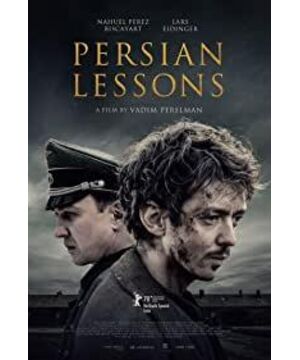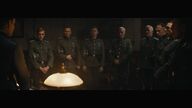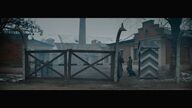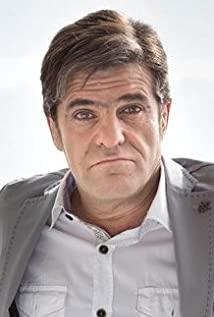The real event archetype makes the film more palpable, and it loses some of the possibility of openness by making it too neat. Although the film does not have any originality in the narrative, the presentation of the characters is wonderful, especially the portrayal of the "negative character" - the Nazi officer Koch. One of the most interesting points is that the movie actually tells the story of a lower class against the lower class. If Reza was an absolute lower class in a concentration camp as a prisoner, then Koch, a Nazi officer, joined the Nazis in order to break away from a poor family from the lower class. It seems that he has some power in his hands, but in fact, he is only regarded by others as a lowly "cook" in the military officer society. Is he not a kind of "bottom" in the Nazi camp (of course, he is only relatively low among those in power). , and those lower-ranked Nazi soldiers who can only hold chicken feathers as arrows for him)? This may explain why he still feels pity for Reza, and even unilaterally intends to develop a friendship with him, even if it is initially selfish.
But what needs to be seen in this film is not the cross-border relationship between Koch and Reza (Nazi prisoner), and what should be most vigilant are those interpretations that make the relationship between the two superficial and gentle Impulsive (the so-called knocked). There is no doubt about the wickedness of the officer Koch. His warmth towards Reza was self-moving. Although he brought substantial benefits to Reza (a chance for life), he always contained elements of exploitation and oppression. His attachment to power has destined the relationship between them to never be equal. If you take the role of Koch when watching, you will feel that his trust in Reza and treating him differently are the expressions of their tenderness, but in reality On the other hand, Rezana's right to life, which is never in his own hands, and his very little right to speak (even wanting to die for him was blocked by Koch) are constantly piercing this hypocritical warmth. People love to look at the boss, just because they love to look at power, and they love to look at themselves who have power after self-substituting! But the "weak" who is deprived of choice and subject is the real individual in reality. Only when we always stand in Reza's position can we see his torment, the pain, anger and grief behind the 2,840 names he wrote down, and the extreme level of human evil that has reached its peak. If the shaping of Koch represents the film’s penetration of complex human nature, then the multiple relationships of characters shown from Reza’s standpoint are actually to project the film’s reflection on war.
At the same time, the real highlight of the film is undoubtedly how the Nazi Reza used language to fight for his own subjectivity. It is ironic that language, as a symbol of culture, was first despised in the turmoil (at first Reza was reluctant to exchange food for books), and then became the absolute weapon of the weak! However, through language, Reza not only won the victory against the power, but also successfully realized the empowerment of the self-subject, thus proving that the source of subjectivity is internality. The reason why it is difficult for the powerful to wash away the "inferiority of Jewish thought" is precisely because the spirit and thought carried by the culture have detached vitality. The written roster has been burned, but it will live on forever as part of the culture of war. At the beginning, the film uses the dialogue of "abandoning the Ten Commandments" to illustrate that spiritual hymns under the bright light have no direction, and what is presented and emphasized is always the depth of the broadest and narrowest levels of human beings and human nature. That's it!
However, it is worth pondering that when the film shows the empathy of the Nazi officers towards the Jews, does it also express the empathy of the creators towards the former? Here, of course, it does not represent the "incorrect" position of the creator. I prefer to regard it as a reminder: Do not use a label-style crude way to interpret individuals, interpret history, and interpret any manifestation of society. Whether it is possible to interpret the multi-faceted nature of Nazi figures as "banal evil" or as human nature has not yet been wiped out, the most important thing is to understand the origin and aspect of human nature's evil, and then re-examine the oppression and structure of society. of complexity.
It is also on this level that I can still find some qualities of open imagery in this relatively neat film.
View more about Persian Lessons reviews











